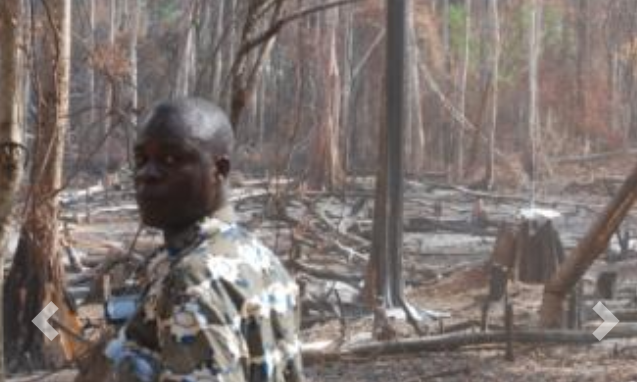The Uganda Law Society and two Civil Society Organisations have filed another petition challenging the planned giveaway of part of Bugoma Forest Reserve in Kikuube district.
Bugoma, a tropical forest gazzeted in 1932, comprises 410 square kilometres of a protected area, and a stretch of forest measuring 40 kilometres. The forest is endowed with unique species of mammals, trees, birds, butterflies and moths. It is also a migratory route for wild animals and a catchment for rivers that drain into Lake Albert, where oil has been discovered.
Recently, Bunyoro-Kitara Kingdom offered a 99-year lease to Hoima Sugar Limited, to grow sugarcane on an area covering 22 square miles. But, the National Environment Management Authority-NEMA found 13 square miles, out of the 22 square miles, were unfit for sugar plantation; They were in a wetland and forest reserve, which should be conserved.
As a result, Hoima sugar was allowed to cultivate sugarcane on 9.24 square miles, covering an area that was entirely grassland and establish an eco-tourism centre on 1.97 square miles of the land. Under the same Memorandum of Understanding, the Sugar Company was tasked to restore 3.13 square miles of the forest reserve, preserve 0.156 hectares for the cultural site and 6.17 square miles as a natural forest.
But the plan was challenged by conservationists; comprising the Water and Environment Media Network, the National Association of Professional Environmentalists and the African Institute for Energy Governance-AFIEGO, who described the giveaway as a threat to the ecosystem and endangered species in the Forest Reserve. However, their suit which was filed before the Civil Division of the High Court was dismissed by Justice Musa Ssekaana on grounds that it contained distorted facts.
But now, Uganda law society has teamed up with Environment Shield Limited- a civic Organisation specializing in climate, natural resources and environmental justice and Resource Rights Africa, a research and advocacy organization that advocates for the promotion and protection of people’s rights to challenge the same. Together, they are suing Hoima Sugar Ltd, Martin Aryagaruka, National Environment Management Authority-NEMA and the Attorney General.
They want the court to declare that NEMA omitted and didn’t adhere to the mandatory principles of environment management before approving an Environmental and Social Impact Assessment by the Sugar firm.
Their lawyer Salmat Mutale says that NEMA did not do enough research on the impact of clearing part of the forest for Sugarcane growing, a reason they have kept their report out of public scrutiny.
The applicants also want the court to declare that the Environmental and Social Impact Assessment report by Hoima Sugar Ltd was shallow, inaccurate and misleading hence threatening the right of Ugandans to a decent, clean and healthy environment. According to lawyer Eron Kiiza, NEMA has failed on its mandate adding that when the environment is destroyed, the right to a clean environment, fresh breathing air and livelihood are affected.
Hussein Kato, the Executive Director of Earth and Rights Initiative, an NGO that seeks to protect the natural environment and the people and wildlife that depend upon it has called upon the government, the Private Sector and all Ugandans to stand up and protect forests. He says forests are key in reversing the effects of climate change, pollution and poor waste management.
Kato notes that forests are already under threat by illegal loggers. He proposed to the government to take possession of any private land with big environmental importance and maintain them.
On April 25, 2019, High Court Judge Wilson Wilson Musalu Musene dismissed a case in which the National Forestry Authority had sued the Omukama of Bunyoro Kitara, Hoima Sugar Limited and Uganda Land Commission over the same land.
In his judgement, The judge indicated that the Bunyoro Kingdom acquired freehold interest and legally leased land to Hoima Sugar Limited. NFA subsequently appealed the High Court ruling but lost the case in another judgement by Justice Fredrick Egonda-Ntende on December 3, 2019.
URN










